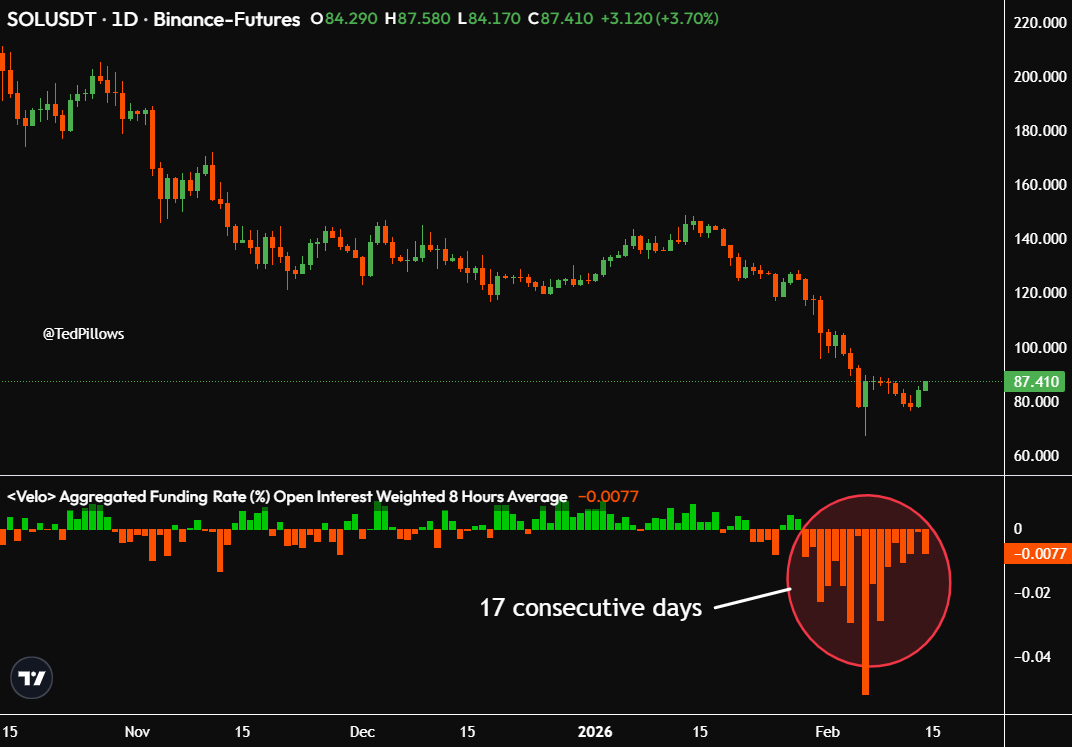
The Economic Impact of Adopting Bitcoin as an Alternative for Goods and Services
Introduction to Bitcoin: A Revolutionary Digital Currency
In 2008, an enigmatic figure known as Satoshi Nakamoto introduced the world to Bitcoin, a groundbreaking concept that married the notions of decentralization and digital currency. Unlike traditional fiat currencies, centralized and regulated by governments and financial institutions, Bitcoin is the antithesis – a decentralized digital currency exchanged through a peer-to-peer network. It’s an open-source platform, meaning it’s accessible to anyone with an internet connection, and it operates independently of any centralized authority.
Bitcoin’s Blockchain Technology: A Game Changer
At the heart of Bitcoin’s innovative approach is the blockchain technology. This serves as a public ledger, recording every Bitcoin transaction securely and transparently. The blockchain’s decentralized nature ensures that transactions are verified by a vast network of computers rather than a single entity, lending to its robust security features. This technology is not just a bedrock for Bitcoin but has spurred a revolution, influencing various sectors beyond finance.
Contrasting Bitcoin and Traditional Currencies
Traditional currencies are characterized by their physical form and centralized control by national banks and governments, which can influence their value through various monetary policies. Bitcoin, on the other hand, is entirely digital and operates on a decentralized network. This fundamental difference has several implications. For one, Bitcoin transactions can be more private and efficient, bypassing traditional banking systems. However, unlike fiat currencies, Bitcoin’s value can be volatile, and its acceptance as a medium of exchange is still growing.
The Growth and Popularity of Bitcoin
Since its inception, Bitcoin has witnessed a staggering rise in popularity and value. Initially embraced by a niche community of tech enthusiasts, it has evolved into a major financial asset, with a market cap exceeding $1 trillion as of 2023.
A Cambridge University study noted a significant increase in cryptocurrency wallet users globally, from about 35 million in 2016 to nearly 101 million in 2023. This surge reflects a growing acceptance of Bitcoin as a viable financial asset and a medium of exchange, with around 19% of the world’s population reportedly buying cryptocurrency in 2023.
Bitcoin’s Role as a Currency
As a decentralized currency, Bitcoin transactions occur directly between peers, validated and confirmed by a network of miners. These miners play a crucial role in maintaining the integrity and security of the network by solving complex mathematical problems.
This process, known as mining, not only ensures the fidelity of transactions but also controls the creation of new bitcoins, adhering to a capped total supply of 21 million coins.
Advantages Of Traditional Currency
Bitcoin’s decentralized nature offers several advantages over traditional currency. It allows for faster, more efficient transfers without intermediaries, provides a higher level of privacy, and is immune to inflation and economic crises, thanks to its independence from government control. Furthermore, Bitcoin’s blockchain technology ensures enhanced security and transparency.
Challenges and Disadvantages
Despite its numerous benefits, Bitcoin has its challenges. Its value is known for its high volatility, making it unpredictable for everyday transactions. The lack of widespread acceptance as a payment method and concerns over security and potential fraud in the Bitcoin market are notable issues. Additionally, regulatory challenges persist due to the decentralized nature of cryptocurrencies like Bitcoin.
Advantages of Bitcoin in the Marketplace
Revolutionizing Cross-Border Transactions
Bitcoin has been instrumental in transforming the dynamics of cross-border transactions. Its decentralized nature eliminates the need for traditional financial intermediaries, making transactions faster and more cost-effective. This is especially beneficial in the remittance market, where Bitcoin can significantly lower the costs and increase the speed of sending money across borders. By doing so, Bitcoin offers an accessible financial service to the unbanked population in developing countries, enhancing global financial inclusion.
Empowering the Unbanked
Many of the world’s population needs access to traditional banking services. Bitcoin solves this issue by allowing individuals to engage in financial activities without a conventional bank account. With a smartphone and internet access, anyone can set up a Bitcoin wallet, facilitating financial inclusion. This feature is pivotal in countries where access to banking is limited, helping to integrate a large section of the population into the economy and lifting them out of poverty.
Enhancing Security and Transparency
The underlying blockchain technology of Bitcoin ensures that all transactions are transparent and immutable. This reduces the risk of fraud and increases security for financial transactions, particularly in cross-border remittances. Bitcoin transactions’ public yet pseudonymous nature balances transparency and privacy, contributing to its security advantages.
Economic Diversification and Resilience
Bitcoin serves as an important asset for diversification in national economies. By incorporating Bitcoin into their financial systems, countries can build more resilient frameworks less reliant on traditional banking and financial institutions. This diversification can safeguard against economic shocks and promote greater stability in the face of global economic uncertainties.
Addressing the Challenges
While the advantages of Bitcoin are clear, some challenges need addressing. The regulatory environment for cryptocurrencies varies across jurisdictions, necessitating clarity for developing inclusive ecosystems. User education is crucial, as the adoption of cryptocurrencies requires an understanding of their risks and proper usage. Furthermore, the volatility of Bitcoin poses risks, particularly for those who rely solely on cryptocurrencies for financial services. Efforts to bridge the tech gap, especially in areas with limited access to technology and digital literacy, are essential to ensure that the benefits of Bitcoin are accessible to all.
Bitcoin’s Global Economic Influence: Remittances and Beyond
Bitcoin is significantly transforming the landscape of global remittances, offering faster, cheaper, and more inclusive financial transactions. This transformation has profound implications for economic activities, especially in cross-border transactions.
Streamlining Cross-Border Transactions
Traditional remittance services often involve high fees and lengthy processing times, posing challenges for individuals in less privileged countries who depend on remittances for basic needs. By leveraging its decentralized nature, Bitcoin enables swift and cost-effective cross-border transactions. This efficiency is crucial for urgent situations where immediate access to funds can be life-changing.
Financial Inclusion and Accessibility
The global remittance market, valued at approximately $682 billion in 2022, is pivotal in supporting the livelihoods of many, especially in low- and middle-income countries. Bitcoin democratizes financial services by removing the necessity for traditional banking infrastructure, allowing anyone with an internet connection to participate in the global economy. This accessibility is particularly beneficial in underprivileged countries, where conventional banking systems are often out of reach for a significant portion of the population.
Reduced Transaction Costs and Enhanced Efficiency
Bitcoin’s ability to bypass intermediaries in the transaction process leads to significantly lower costs than traditional remittances, averaging around 6.4%. These savings are vital for recipients in developing countries, where every fraction of the transferred amount counts. Furthermore, the speed of Bitcoin transactions ensures that funds reach their recipients much faster than traditional methods, enhancing the overall efficiency of remittances.
Overcoming Barriers in Traditional Remittance Systems
The remittance industry, dominated by traditional banking and money transfer operators, often requires access to banking facilities and faces challenges like high transaction fees and unfavourable exchange rates. Bitcoin and other cryptocurrencies offer a disruptive alternative, facilitating more equitable and accessible financial transactions globally.
The Future Outlook
The growing adoption of digital remittance services, propelled by technological advancements and evolving customer demands, signifies a shift towards more digitalized financial transactions. This trend is expected to continue, reshaping the dynamics of the global remittance market.
Challenges and Considerations
Despite the potential benefits, the widespread adoption of Bitcoin for remittances faces challenges, including regulatory uncertainties, the need for user education, and concerns about price volatility. Overcoming these barriers is essential for harnessing the full potential of Bitcoin in revolutionizing the remittance industry.
Conclusion
As we stand at the precipice of a new era in economic transactions, the potential of Bitcoin and its underlying technology, blockchain, looms large, promising a transformative force in our financial systems. Yet, this journey towards a digital-first financial landscape has challenges and uncertainties.
Bitcoin’s ascendancy from a niche digital asset to a significant economic player has been meteoric. Its decentralized nature, underpinned by blockchain technology, offers a paradigm shift in how we perceive and engage in financial transactions. Decentralized finance (DeFi) projects have emerged, leveraging blockchain to facilitate financial services like lending, borrowing, and trading, bypassing traditional financial institutions and their associated fees. This innovation heralds a new era where financial transactions could become more accessible and transparent.
However, this digital revolution has its pitfalls. The rise of cryptocurrencies has ushered in challenges that governments and regulatory bodies grapple with. Concerns range from the potential for criminal activities, such as money laundering and financing terrorism, to environmental impacts due to the energy-intensive process of Bitcoin mining. Moreover, the volatility and lack of regulation in the crypto space raise consumer protection and financial stability issues. High-profile collapses within the cryptocurrency industry have sparked debates over the need for more robust regulation to safeguard investors and the broader financial system.
In response, many governments are taking steps to craft regulations for cryptocurrencies and DeFi, aiming to balance the need for financial security with the desire not to stifle innovation. This regulatory landscape is varied, with some countries embracing digital currencies while others opt for outright bans.
Looking ahead, the future of Bitcoin in economic transactions hinges on a collaborative effort. Governments, businesses, and individuals must work together to harness the benefits of Bitcoin and blockchain technology while mitigating their risks. This includes developing comprehensive regulations that protect consumers and the financial system, promoting the adoption of renewable energy sources for Bitcoin mining to address environmental concerns, and fostering an environment of innovation that allows the potential of decentralized finance to be fully realized.
As we navigate these uncharted waters, the role of Bitcoin and other cryptocurrencies in our economic systems will undoubtedly evolve. It is a journey marked by both opportunities and challenges, and our collective efforts will determine the trajectory of this digital economic revolution.





